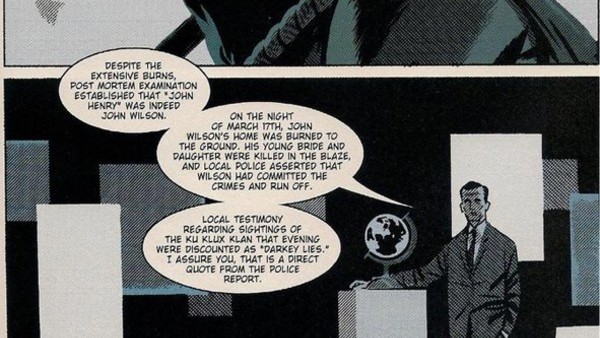10 Reasons Why 'The New Frontier' Will Always Be DC's Greatest Graphic Novel
4. It Tackles Issues Both Past And Present

Before I progress, it must be said that the American experience of the 1960s is unfairly glamourised, romanticised, and stereotyped as an age of unshakable idealism and naivety. Many progressive changes were affected, yes, but it was still a decade blighted by racial violence, prejudice, war, and political polarisation. It is the decade that many see as the birth of modern America, exemplifying countercultural norms as well as a new-right resurgence that would later entrench already embittered divisions across the nation. It makes sense that the era has received so much attention, both scholarly and otherwise, but any study of the decade is incomplete without examining its ills as well as its changes.
The New Frontier excels at both, chronicling the birth of the 'long' '60s and with it the formation of DC's Silver Age with great intricacy. Over the course of the novel, Cooke tackles not only the rampant hysteria of McCarthyism and the Red-Scare, but also themes of prejudice, security, freedom, military intervention, civil rights, resistance, and of course the eponymous and ever elusive concept of 'The New Frontier' itself. He did this all with the legendary figures of DC's past, but if there was any one message that resonates most, it would be the dialogue presented between Agent King Faraday and J'onn Jonzz.
Faraday - a government agent most will remember from his brief appearances in Justice League: Unlimited - is as reactionary and conservative as they come when we meet him in Cooke's Earth-21. The main man behind the government's anti-superhero task force, Faraday is a stalwart through and through, unshaken in his belief that his work capturing meta-humans is a righteous act - a necessary evil to safeguard his friends, his family, and his country. However, a chance encounter upon Martian Manhunter offers valuable insight into a character that could be so easily vilified at a glance.
Through their conversations, Jonzz reaches into the agent's mind and reveals that he is, in fact, a good man at heart; not a vanguard of draconian authoritarianism, but a pragmatist that believes "a better day" will render his work redundant. It is with this discussion that Cooke aims to admonish prejudice in all its forms, and it is a theme that is repeated until the tale's final panels.